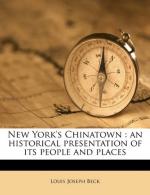|
This section contains 821 words (approx. 3 pages at 300 words per page) |

|
1472-1529
Philosopher
Early Life. When Wang Yangming, son of an official in Zhejiang province, was a boy, he became versed in government fields that required great common sense, such as military protection. Like the philosopher Zhu Xi, he was determined to become a sage. At eighteen he met, in Jiangxi province, the famous scholar Lou Liang, who discussed with him the exploration of things. Wang won his jinshi degree in 1499. He declared that it was absolutely possible to become a sage through study. Later, after reading the books of Zhu Xi, he gradually believed that, in line with Confucianism, all things—outside or inside, excellent or poor—contained within them the supreme principle. In 1498 he started to learn in a systematic way, but for him, mind and principle remained unconnected. After hearing a Daoist monk's lecture on the principle of nurturing life, he once...
|
This section contains 821 words (approx. 3 pages at 300 words per page) |

|




